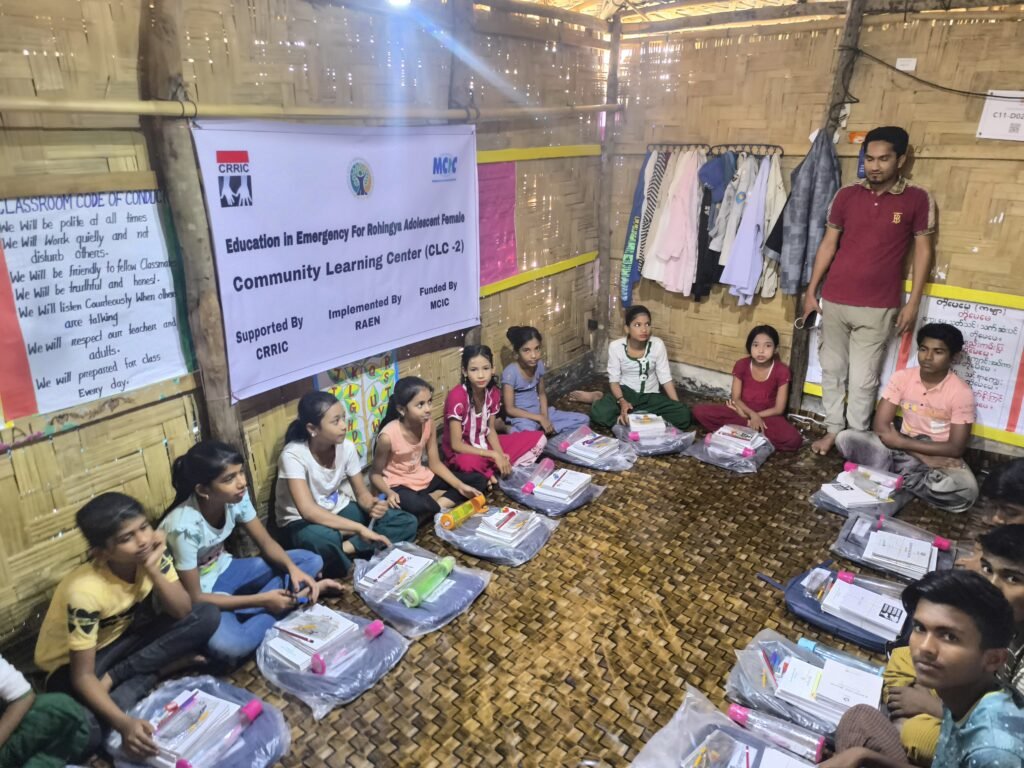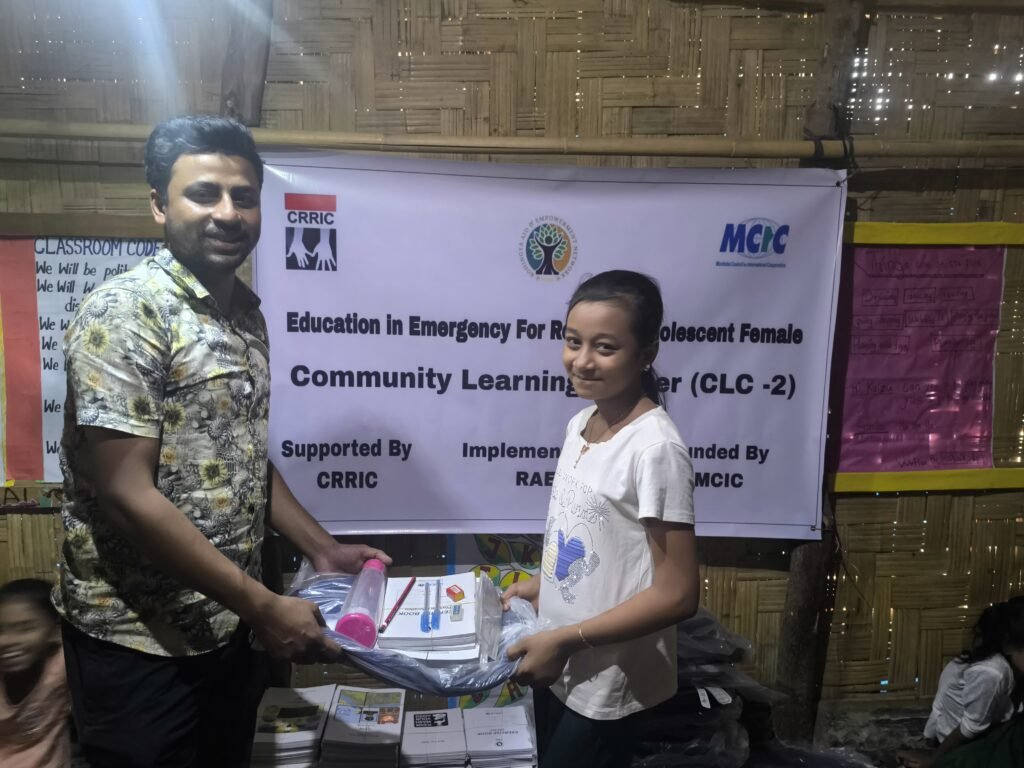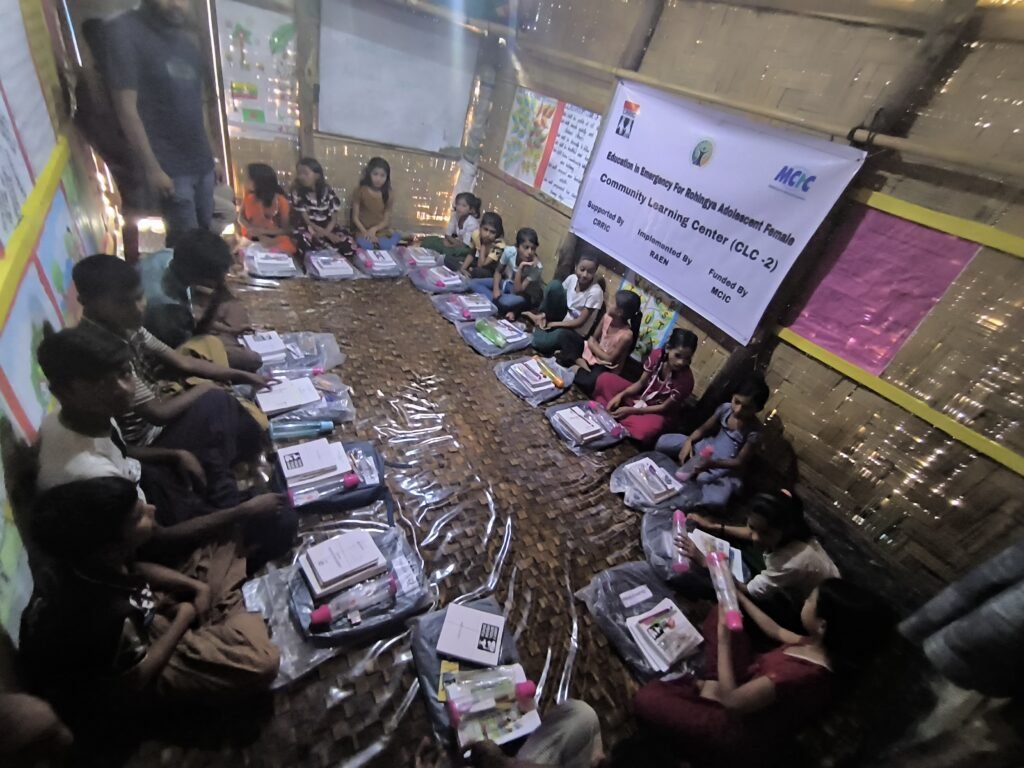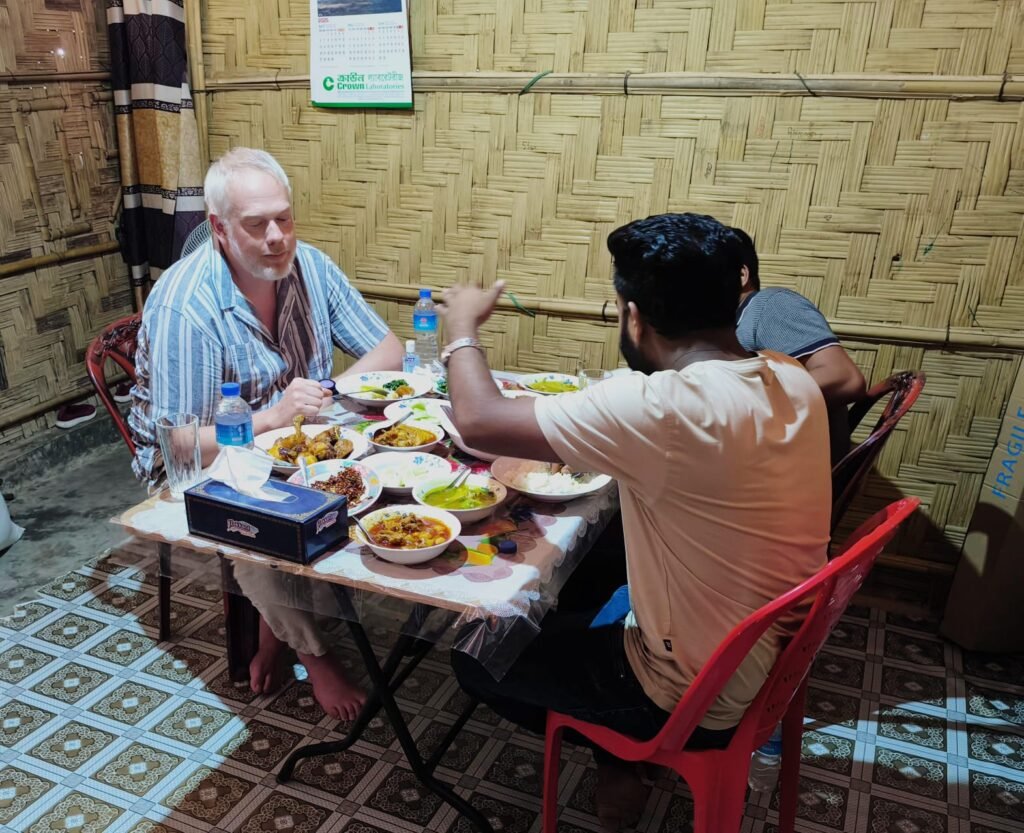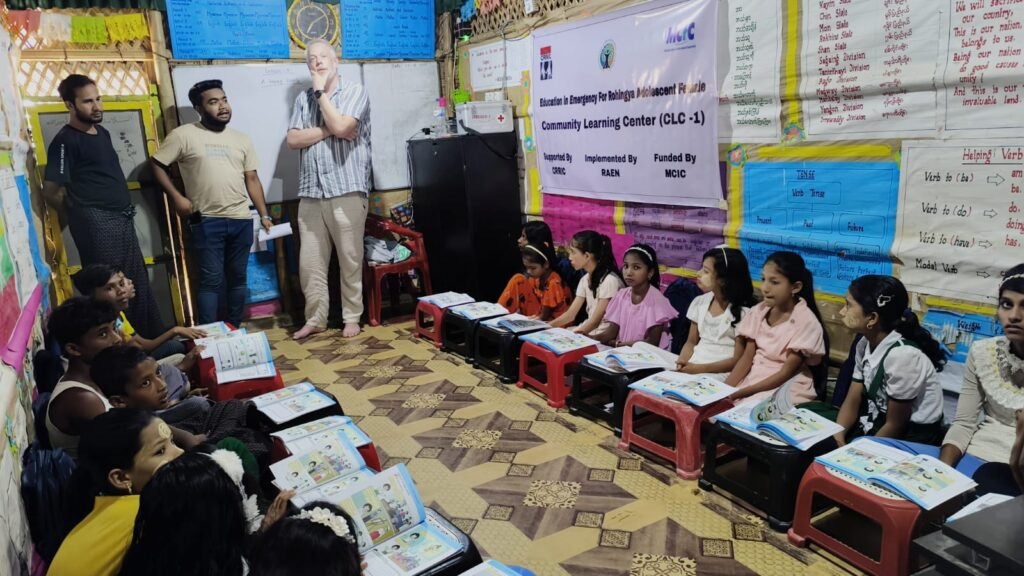Education in Emergencies for Rohingya Adolescent Females
Project Lead: Conflict and Resilience Research Institute Canada (CRRIC)
Project Country: Bangladesh (Cox’s Bazar District, Rohingya Camps)
Overseas Partner: Rohingya Aid and Empowerment Network (RAEN)
Project Duration: March 1, 2025 – August 30, 2025
Funding Organization: Manitoba Council for International Cooperation (MCIC)
Project Objectives:
- To provide inclusive education and life-skill training to 25 adolescent Rohingya girls and boys (Grades 3–6) in the Kutupalong and Balukhali refugee camps.
- Empower female adolescents through education, promoting delayed marriage, improved maternal health, and enhanced decision-making capabilities.
- Establish community-led learners’ cooperatives for sustainable education and long-term capacity building.
Key Deliverables:
- Training of Trainers (ToT): Local community members will be trained as educators, ensuring community ownership and capacity development.
- Curriculum Integration: Peacebuilding and life-skills training embedded within the education curriculum, focusing on reproductive health, gender-based violence (GBV) awareness, and conflict resolution.
- Creation of Learners’ Cooperative: Establishing a community-driven cooperative/club to sustain educational activities and ensure long-term community engagement.
Target Beneficiaries:
- Direct Participants: 25 adolescent Rohingya girls and boys (20 girls, 5 boys)
- Indirect Participants: 25 community members (parents and siblings)
Alignment with Sustainable Development Goals (SDGs):
The project directly contributes to the following SDGs:
- SDG 4: Quality Education – Ensuring inclusive and equitable education for marginalized Rohingya adolescents.
- SDG 5: Gender Equality – Addressing gender disparities and empowering adolescent girls through education and life skills.
- SDG 16: Peace, Justice, and Strong Institutions – Promoting peaceful societies by fostering social cohesion between refugees and host communities through peace education.
Theory of Change:
If Rohingya adolescent girls and boys receive inclusive education, life-skill training, and community support within a safe and gender-sensitive environment,
Then they will develop literacy, essential life skills, and increased awareness of gender equity, leading to improved educational outcomes, delayed early marriage, and greater social resilience.
Because education is a powerful tool for peacebuilding, social inclusion, and long-term community transformation, especially when coupled with life-skills training and gender-responsive programming.
Short-term Outcomes:
- Increased literacy and numeracy among adolescent girls and boys.
- Greater participation in educational activities by female adolescents.
- Enhanced awareness of health, hygiene, and GBV prevention.
Long-term Outcomes:
- Reduction in early marriages and improved maternal health for female participants.
- Strengthened community resilience through education-driven peacebuilding.
- Sustainable education initiatives through the learners’ cooperative model.
Impact:
The project aims to build a more resilient and empowered Rohingya community, fostering gender equality, reducing social vulnerabilities, and promoting peaceful coexistence between refugees and host communities.
Memories
